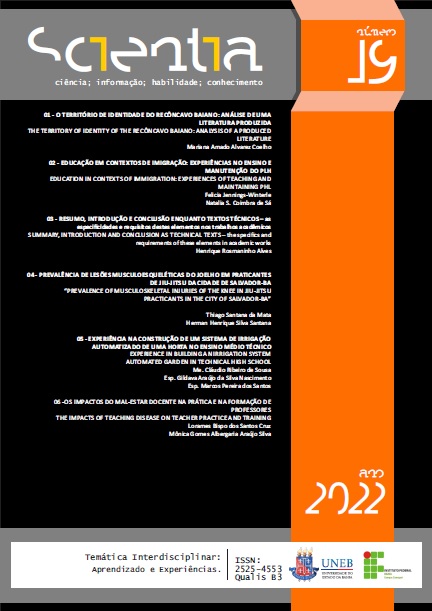REINVENTING EDUCATION IN CONTEXTS OF IMMIGRATION:
EXPERIENCES OF TEACHING AND MAINTAINING PHL
Abstract
Certain areas of knowledge are indicative of the socio-historical-cultural complex that encompasses them. Thinking about education, for example, requires crossing powerful fragments of current ideology. Multidisciplinary constructs discuss the plurality of the no longer so specific place of education, particularly in immigration contexts, by teaching and maintaining a heritage language. The purpose of this paper is to highlight an important shift in contemporary education resulting from contemporary migrations, which re-signifies concepts in order to facilitate this cultural transmission. This contribution highlights the teaching of Portuguese as Heritage Language (PLH), a minority language present in immigration contexts. The methodology is both qualitative and quantitative, based on literature and documents review concerning the subject. And also, the development of a longitudinal-latitudinal study that has been conducted since 2013 by the study group linked to the international non-governmental organization “Brasil em Mente” (Plurall) based in New York City, USA. The group has been mapping, through interviews and questionnaires, several initiatives and teaching programs of Portuguese as Heritage Language, promoting courses and annual events on teaching, promotion and dissemination of PLH throughout the world. They have been conducting systematic research and publishing articles and books, promoting lectures, and also monitoring educators and the development of their projects in several countries. As a result, it was observed that due to and concomitant with contemporary migrations and globalization, hybridization and the consequent plurality of immigrant and transient cultures and identities are inevitable. The teaching and development of a heritage language represents one of the facets of this scenario: a form of addition and possible guarantee of plurality among individuals. And thus, the importance of its valorization as a way of diffusion and maintenance of Brazilian culture across borders and generations stands out.
Downloads
Downloads
Published
How to Cite
Issue
Section
License
A partir da submissão entende-se como automática a cessão dos direitos autorais para a Revista, uma vez tendo sido aprovado e aceito para publicação.
From the submission is understood as automatic the assignment of copyrights to the Journal, once it has been approved and accepted for publication.





